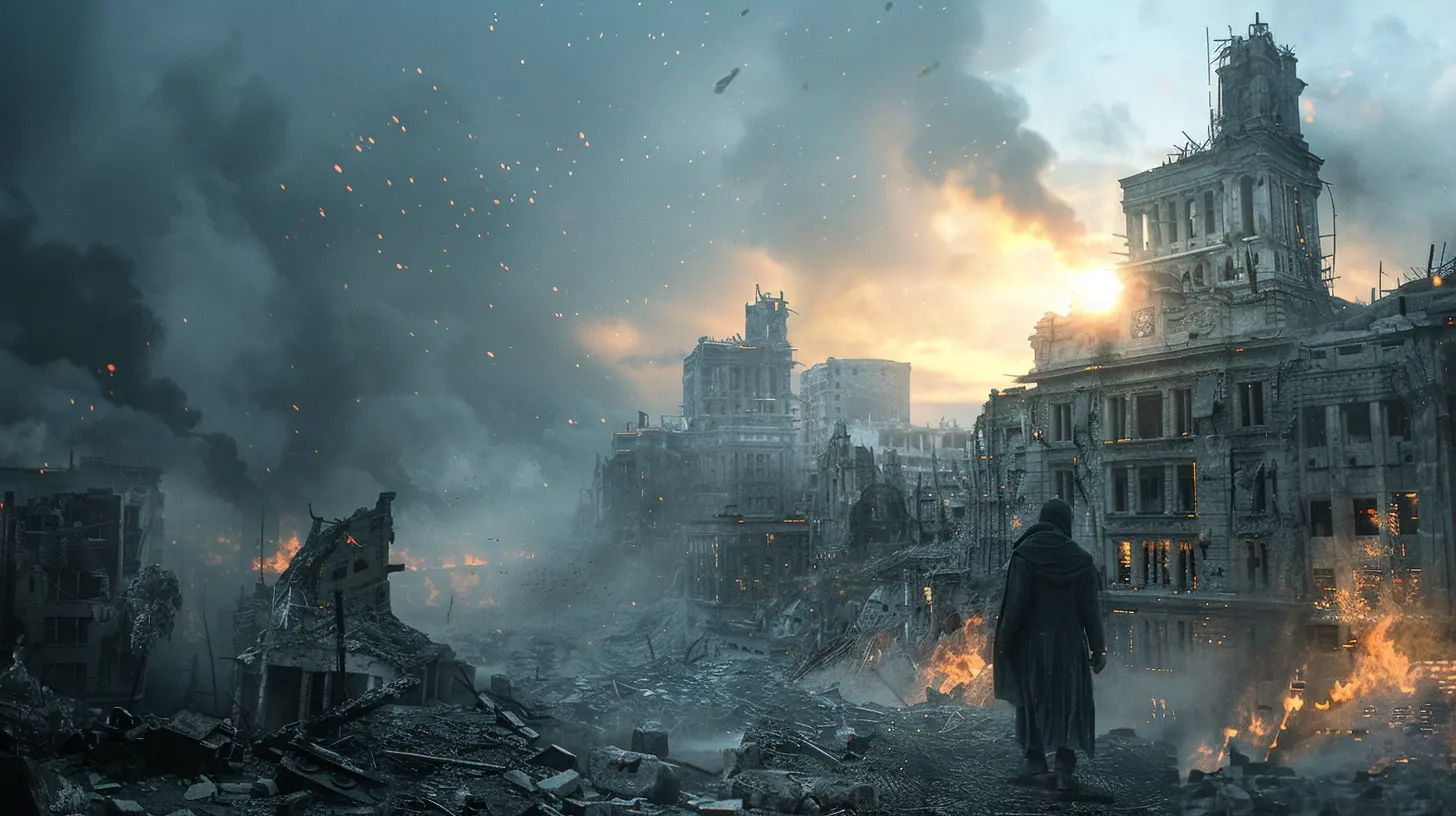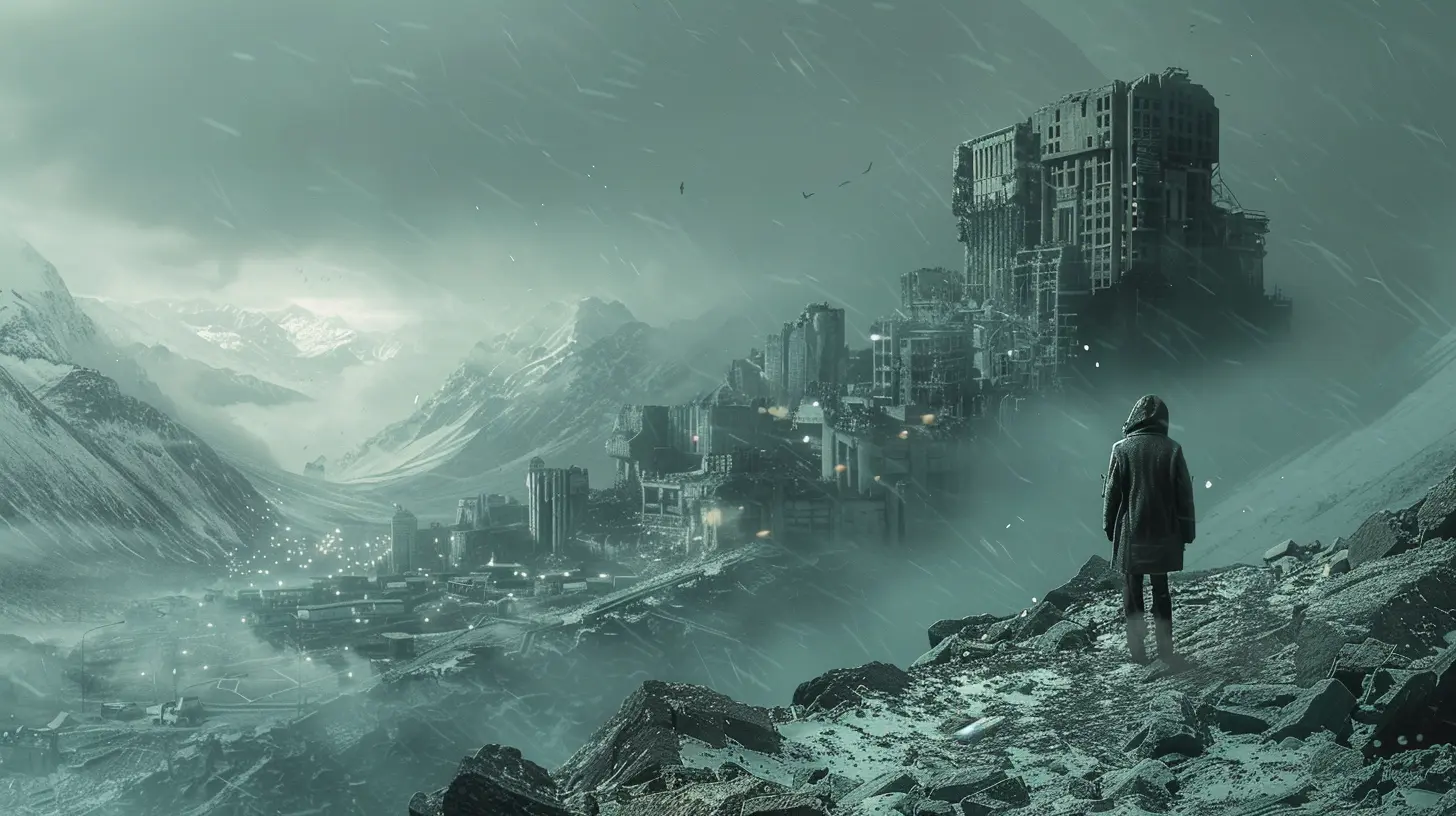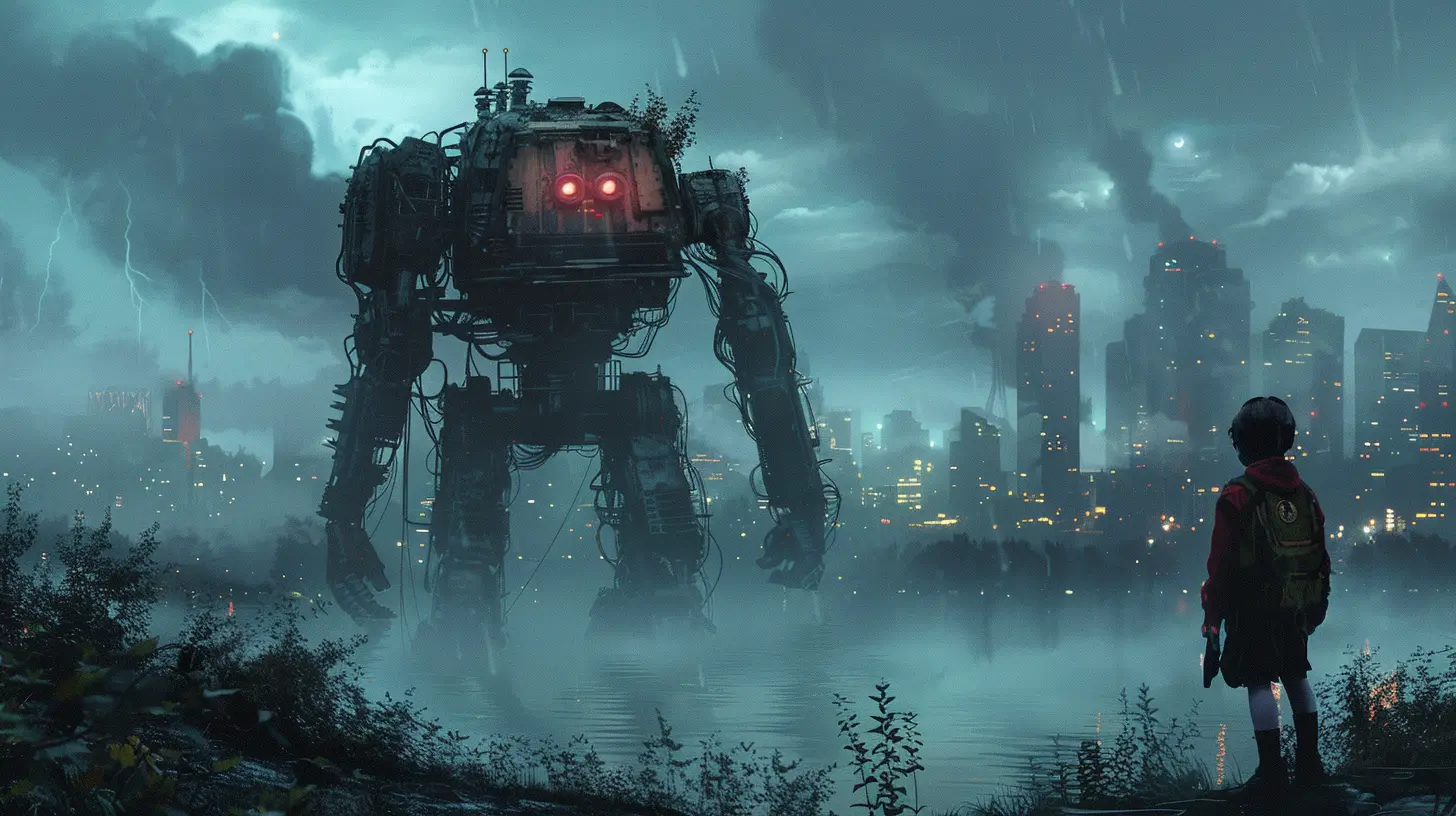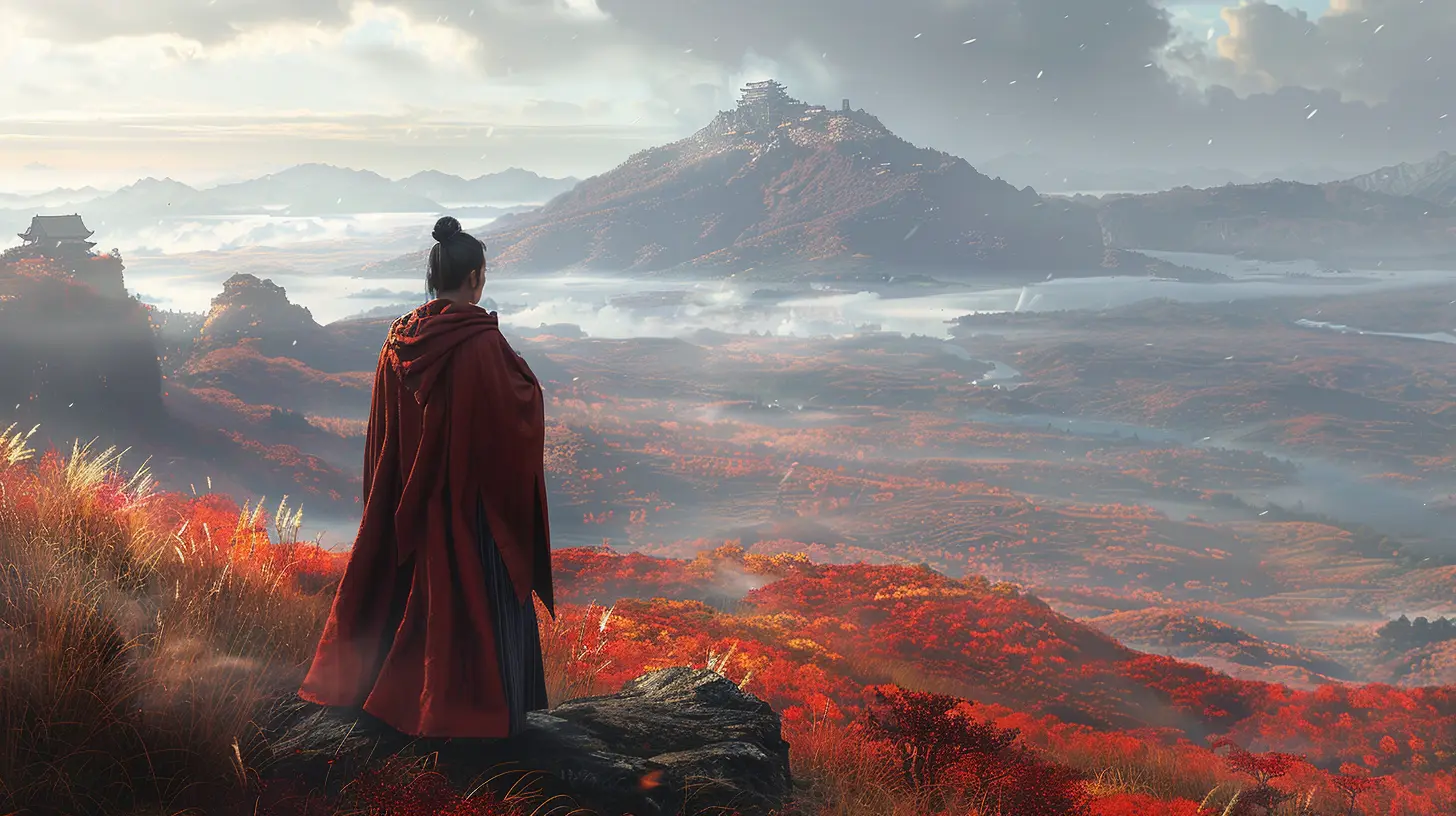Games Where Narrative Choices Drastically Alter the World
10 November 2025
Ever finished a game and thought, “Whoa, did I just completely mess up this world—or save it?” That’s the magic of games that let your narrative choices reshape the story and its surroundings. We're not just talking about different endings here. We're talking about full-blown butterfly-effect-level decisions that change cities, characters, factions, and the entire course of a digital universe.
So grab your controller (or keyboard), because we’re diving into some of the most epic games where your choices don’t just matter—they change everything.
Why Narrative Choice-Based Games Hit Different
Before we get into the juicy list, let’s talk about why this kind of storytelling is so powerful. When a game reacts to your decisions, it feels personal. You’re not just playing a character—you are the character. The stakes feel real. The guilt? Oh, it’s real. The pride when you save everyone? That, too.Games with branching narratives and world-altering decisions give us replayability, emotional investment, and a sense of agency that linear stories just can’t touch.
Okay, enough talking. Let’s dive into some of the best examples of games where your choices ripple outwards and shake up the whole universe.
1. The Witcher 3: Wild Hunt – Choices With Consequences That Hit Hard
There’s a reason this game gets brought up every time someone talks about impactful storytelling.In _The Witcher 3_, your decisions affect entire kingdoms. Siding with one ruler over another can lead to peace or total chaos. You might think you made the right choice—only to find out hours later that you orchestrated a political disaster.
Even your smallest choices, like letting someone live or die on a side quest, come back around. And when they hit, they hit like a Mack truck. You’re not just Geralt of Rivia—you’re a walking, talking historical event.
2. Mass Effect Trilogy – A Galactic Legacy You Build One Choice at a Time
If you’ve played _Mass Effect_, you know the real star of the show isn’t Commander Shepard—it’s the decisions you make. Over three massive games, your actions cause major shifts in galactic politics, alliances, and even the survival of entire species.Kill or save the Rachni Queen? Cure the Genophage or not? Siding with different factions feels like playing chess with alien civilizations, and every move has long-term consequences.
By the time you reach the third game, your choices from _Mass Effect 1_ and _2_ come roaring back with emotional and political weight. It’s storytelling on a scale few games dare to attempt.
3. Detroit: Become Human – Every Choice Matters… Literally
Talk about a game where decisions matter—this one leans into that idea harder than most.In _Detroit: Become Human_, you control three android protagonists, and every single decision you make branches the narrative into a wild web of possibilities. We’re talking dozens of endings, character deaths you can’t undo, and entire storylines that vanish if you choose differently.
The cool part? The game shows you the decision tree after each chapter, so you can literally see how many paths you didn’t take. It's like staring into the multiverse of your own morals.
4. Until Dawn – A Teen Horror Movie You Direct
Imagine being dropped into a cheesy '90s slasher flick but with a twist—you decide who lives and who becomes monster food._Until Dawn_ is all about the “butterfly effect.” Every choice, seemingly big or small, affects who survives until morning. Do you go investigate a strange sound or stay safe? Each decision shapes the story and environment, building tension every step of the way.
The best part? You won’t even realize the weight of some decisions until much later. It’s like setting up dominoes without knowing which way they’ll fall.
5. Disco Elysium – Dialogue Drives the Entire World
This one’s a bit different. There’s no combat in _Disco Elysium_—it’s all about your dialogue choices and internal monologue. But make no mistake, your choices create seismic shifts in the story’s outcome.Your decisions—what you say, what you believe, and how you interpret the events around you—all shape the game world and how others perceive you. It’s not about saving the world. It’s about changing how your world reacts to you. Pretty deep, right?
It’s like being in a psychological snow globe, and every shake is a thought you had.
6. Telltale’s The Walking Dead Series – Harrowing Choices That Haunt You
No one forgets the first time they played _Telltale’s The Walking Dead_. That gut punch at the end of Season 1? Yeah, you know the one.This series is brutal with its choices. Saving one character usually means another dies. And the decisions don’t stop there—later seasons carry the consequences of your past actions. By Season 4, the foundation of your version of the world feels totally unique.
It’s a masterclass in storytelling simplicity: limited mechanics, but emotionally charged choices that leave scars.
7. Cyberpunk 2077 – Flawed But Fantastic in Player Choice
Let’s be real: _Cyberpunk 2077_ had a rocky launch. But beyond the bugs and broken expectations, there’s a deeply reactive narrative structure underneath.How you treat characters like Panam or Judy, whether you help rogue AIs, and the moral compass you follow—all of that decides what kind of world you leave behind. Multiple endings showcase vastly different Night Cities, shaped by your decisions.
It’s not perfect, but it proves one thing: when RPGs take choice seriously, the payoff is magnificent.
8. Dragon Age: Inquisition – Political Webs and Personal Stakes
In _Dragon Age: Inquisition_, you’re more than a hero—you’re a political figure pulling strings that decide the fate of nations. Whole territories change hands based on your decisions. Races gain or lose power. Allies can become bitter enemies.And like _Mass Effect_, choices from previous games bleed into this one, making it feel like you're carrying the weight of an entire series on your back.
You’ll spend as much time navigating diplomacy as you do fighting dragons—and both are equally thrilling.
9. Heavy Rain – Every Decision Inches You Toward One of Many Endings
_Heavy Rain_ does something few games dare: it lets you fail the entire story and keeps going.Mess up a QTE? Your character might die. Make a wrong choice? Someone else might take their place—or not. And it all leads to one of several endings that range from heartwarming to absolutely bleak.
The kicker? Your decisions don’t feel like they're shaping a plot—they feel like they're affecting people. That emotional weight makes each choice a nail-biter.
10. Fable Series – Classic Good vs. Evil… with Real Changes
Ah, the _Fable_ games. They may look a little dated now, but these games were pioneers in showing how morality affects the world around you.Help townsfolk and your village flourishes. Be a jerk, and you might find shops closed, people running from you, or buildings literally falling apart. Your appearance even changes based on your morality—horns and glowing eyes if you go evil, a halo and angelic aura if you go good.
It’s like watching the world reflect your soul in real-time.
What Makes a Good Choice-Based Game?
Alright, there’s a lot of games with “choices,” but not all of them are created equal. Some just change a couple of dialogue lines or the color of the ending screen. Meh.The best ones? They do this:
- Create Emotional Weight — You feel the consequences.
- Affect the World Visibly — Towns, characters, and politics shift.
- Offer Real Replay Value — Playing again shows a totally different outcome.
- Reflect Your Morality — Your choices reveal who you are.
When a game nails all four, you don’t just play the story—you live it.
Final Thoughts: Choices That Stick With You
Games are no longer just about shooting bad guys or collecting loot (though that’s still fun, let’s be honest). The best games today let you create ripples through an entire world. They remember your decisions, judge your actions, and reward—or punish—you in ways that feel real.So next time you're agonizing over a moral dilemma in a game, remember: you're not just picking a dialogue option. You're changing the world.
Go ahead, be the hero—or the villain. Just be ready to live with it.
all images in this post were generated using AI tools
Category:
Game StorylinesAuthor:

Tayla Warner
Discussion
rate this article
2 comments
Gabriel Lamb
Great article! I appreciate the insights on how narrative choices can profoundly impact gameplay and world-building. It’s fascinating to see how player decisions shape story outcomes, creating a personalized experience. Looking forward to more discussions on this topic!
November 14, 2025 at 4:38 AM

Tayla Warner
Thank you for your thoughtful comment! I'm glad you enjoyed the article and found the insights valuable. I look forward to more discussions on this fascinating topic as well!
Corin McKibben
Great article! It's fascinating how narrative choices can transform gameplay and create unique storytelling experiences.
November 13, 2025 at 6:07 AM

Tayla Warner
Thank you! I'm glad you found it fascinating—narrative choices truly revolutionize gameplay and enhance storytelling in games!


